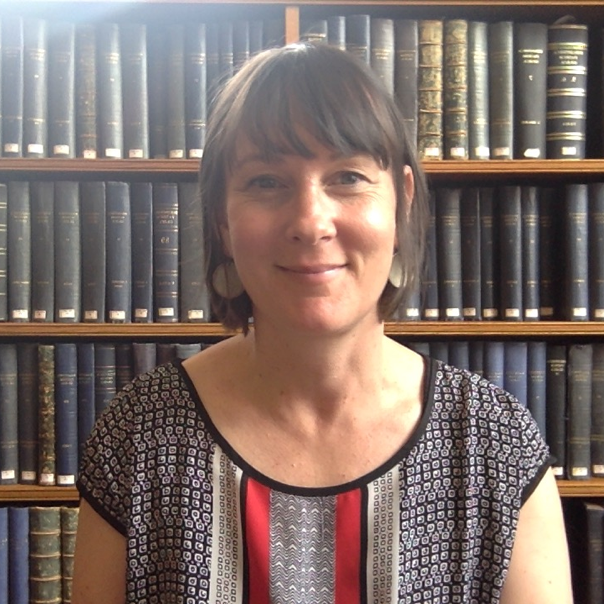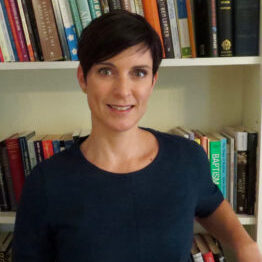Episode Transcript
[00:00:04] Speaker A: You're listening to by the, well, electionary based podcast preachers recorded on the land of the Warunderi people.
Hello, I'm Robin Whitaker and this is the episode for the third Sunday of Advent. And joining me today as a guest co host is the Reverend Dr. Craig Thompson. Welcome, Craig.
[00:00:28] Speaker B: Thank you, Robin. Good to be here.
[00:00:30] Speaker A: And Craig, tell people who don't know you where you're located and where you preach, of course.
[00:00:36] Speaker B: I'm currently the place minister with the congregation of Martha Evangelist, which is the uniting church until recently in North Melbourne. And we've just recently moved to the center for Theology ministry, which is where we're recording this at the moment. Our congregation's taken up residence there for Sunday worship and a few other things. So a time of great change for us.
[00:00:59] Speaker A: Yeah, great. And you do preach most Sundays, don't you?
[00:01:02] Speaker B: I'm in the pulpit most Sundays.
We're generally a pretty lectionary based kind of community. So these texts are what we're working on right now. Yeah.
[00:01:12] Speaker A: Great. It's good to have you here, Craig. For those of you listening, we're going to be discussing all four texts with a focus on Isaiah. So, Isaiah 61, one to four and eight to eleven. We'll briefly look at the psalm 126. We'll spend some time with the gospel, which for this week is John, chapter one, verses six to eight and 19 to 28. And finally, first, thessalonians 516 to 24, and trying to discuss all of those. There's some beautiful grand themes here and we'll try and I think, embody how we think of them, particularly with an advent lens to capture this time of the year.
[00:01:52] Speaker B: Great.
[00:01:54] Speaker A: I might give a bit of background to Isaiah. We're in Isaiah 61 here. It's often this referred to as Deutero or Trito Isaiah. It reflects writing under the post exilic period, probably the fifth century. So the babylonian empire has been taken over by the persian empire. And under King Cyrus of Persia, Jews have been allowed to return to the land and to rebuild the temple in Jerusalem. So the context here is a time of kind of restoration. But the restoration has been slow and not perhaps quite as people imagined.
It's been hard to recapture the grandeur of the first temple and so on. And into that we get this very famous verse of the Lord's spirit is upon me as the Lord has anointed me. So craig, what did you notice? What do you think we need to notice in this reading?
[00:02:51] Speaker B: I think the upon me raises the question of who is it that's speaking here is it Isaiah the prophet? Presumably, to begin with, it is. But how does that sort of unfold as the tradition continues to be repeated over the passage of time? And of course, a text like this pops up later on in the New Testament as well.
So that's there.
There is the proclamation of the year of the Lord's favor and interestingly, the day of vengeance, which is a little less comfortable for us, perhaps, than the Lord's favor. So how to process that? And as we look at the text, at least the selection that we have for this particular Sunday, the voice shifts a little bit from the prophet, presumably, if that's the me to the Lord speaking. And so the interplay between the prophet and God is an interesting thing as well.
[00:03:43] Speaker A: Yeah. I think a creative way preachers could enter this text or reflect, could even be what it means for us to know. God's anointed has many resonances in scriptures, and famously the kings.
But we might say as christians, we're all anointed by the Holy Spirit in our baptism with water and spirit. What does it mean for us both as preachers and for our communities to embody be people, live out this vision of people who are anointed by God and who proclaim such things? But of course, yeah. As you said in Luke four, Luke famously will record that this is Jesus first synagogue sermon that's written down, and where Jesus will then apply this to himself. So there is a tradition of later prophets and then Jesus himself stepping in and claiming this.
[00:04:33] Speaker B: Yes.
[00:04:35] Speaker A: We have these pairings quite well. There's so much we could comment on. I'm not sure where to start. There's tenderness in the binding up of broken hearted.
I think there's a memory, the freedom of captives, that will be like both a very pragmatic, communal memory, but perhaps also there's always a memory in these prophetic texts of what God has already done for the people.
And then this year of favor combined with vengeance, as if God's favor and blessing cannot come without accompanying sort of judgment and sorting out. Do you have thoughts about how we handle that language?
[00:05:19] Speaker B: Yeah, it's a tricky thing. I mean, many in the church these days are at least closet universalists, if not necessarily quite sure how to reconcile that with texts like this, which speak of vengeance. At the very least, it seems to me that acknowledging injustice does the language of vengeance at least points to the fact of injustice, that something has gone wrong.
Precisely what that injustice is here is not clear. Previous prophets have interpreted the exile as punishment rather than infliction. Of injustice, for example, upon Israel.
Not quite so much. The prophets can speak with forked tongues, but sometimes, depending upon where there are, they're going to emphasize one dimension over the other, the judgment or subsequently the justice and the vengeance kind of thing. And it's perhaps very much a matter of what the people at the time need to hear, how they've come to understand where they're at. And this is a very different space to the space of the prophet Isaiah himself a couple hundred years beforehand, speaking to Israel about, well, justice in the community and the justice of God and the punishment, which is how the assyrian catastrophe is interpreted.
[00:06:43] Speaker A: Yes. And their own sin and need for repentance. Because of that, there's a slight shift here as it looks towards restoration and hope.
[00:06:52] Speaker B: It's tempting to sweep the vengeance stuff away, but it's everywhere. So we really have to wrestle with it.
[00:06:57] Speaker A: Yeah, we did. We can't ignore it.
I wonder, too, in the previous verse, we've got a lot of scholars will note that in this language of proclaiming freedom to captives is language that very strongly echoes the language we see in Leviticus 25 around the year of Jubilee, the year of Jubilee being that 50th year where you are released from debts.
When we read things like freedom here, this is not just some spiritual freedom. This is tangible, social, economic, relational liberation.
[00:07:34] Speaker B: Yes. Kind of a reset of the system, isn't it?
[00:07:38] Speaker A: And so I think for me, depending who you are, right, if you're the person who's owed the debt, there is a cost and a redistribution in that what is experienced as absolute favor for one person might actually feel like a cost punishment to someone else. So maybe that, I'm not saying it does away with it, and I don't want to cheapen, but there is a way of seeing, there's lots of rebalancing that goes on here and then even actually complete reversals. So mourning into gladness. And this language is so familiar to us from Luke's gospel in particular.
[00:08:15] Speaker B: And it will be tempting for the preacher to leave it sort of hanging in the air without the concrete application, what this would actually look like in a set of real social, economic and political relationships.
[00:08:30] Speaker A: The lectionary takes us to verse eight, where we get this I the Lord. So all of a sudden we have kind of almost a God speaking through the messenger.
What's the kind of image of God we get here, Craig, what's your sense of, what are these words doing in.
[00:08:47] Speaker B: Terms of I the Lord? I mean, one of the things that strikes me about later Isaiah is the contrast that is very starkly drawn between the God of Israel, Yahweh, and all of the other gods. And it's really pushed to the nth degree, to the extent that God is so far above the gods, that God is almost not a God anymore. And so I think the eye is very strong.
I, the Lord, love justice as distinct from perhaps some of the other gods who might be a little bit more on the side of the rich and the powerful and the wealthy, who are inflicting injustice and so forth. So again, in the context of a people released from imperial captivity and so forth, and the gods associated with that experience, there's a strong emphasis on the character of the God of Israel. And subsequently, of course, the prophet goes on to, I will greatly rejoice in the know. It's in this particular identity with this particular history, this particular set of promises, and not just God in the loose, generic kind of sense.
[00:09:58] Speaker A: Yeah, thank you for pointing that out. That's so important. And, of course, if people don't know this, where you have a lord with all caps like that, it means that the word in the Hebrew is Yahweh, which is not a word I say very much because Jews see it as a holy name of God that shouldn't be uttered. Sometimes it ends up being Jehovah in sort of English.
But it is the particular name that Moses is given for how you will know that this is your God. So it is that particular experience of God that this people have had and have a covenant with. Right?
[00:10:34] Speaker B: Indeed, yeah. It's an important principle, I think, for thinking in biblical terms or thinking through biblical terms in a present context, where our present question very much or very often today is, is there a God? It's never a biblical question. The biblical question is always which God? It presumes we are subject to powers, and it asks a question, which one? And therefore the name, which is how you distinguish between the gods is quite important.
And the polemic of not that one, but this one, not that way, but this way is quite crucial, I think, in interpreting these texts.
[00:11:15] Speaker A: Yeah, definitely.
The other thing that struck me in this reading towards the end, in verses sort of ten and eleven, is we get a kind of one way the community can embody the message. And it's in these images of being wrapped in clothing. Right. The garments of triumph, victories, cloak images of a bridegroom and a priest and a bride. In some ways, these are all, of course, poetic ways of thinking. And then we get plant images and other ways of imagining what this rejoicing and participating in the promises of God look like. But as I think ahead to where we might end up in know, John will testify to Christ.
And one of the themes that know, I've been thinking with in terms of the way all these passages speak this week in advent is one of the questions for our communities is how do we embody the good news? How are we testifying to Christ? I mean, we have to know which God we're pointing to and the nature of that God.
But how do we do that? And I think we can do that with words, but there is something about we do that with our garments. I mean, not literally our clothing, but maybe we do it with even the way we dress our churches.
[00:12:31] Speaker B: Yes.
[00:12:32] Speaker A: Right. Sometimes, quite unconsciously, we are communicating all sorts of things about the God we believe in.
[00:12:39] Speaker B: Indeed. And in fact, on a Sunday, most often, I do cover myself in a garment which is intended to illustrate something of just the point being made here over a righteousness or a standing before God, which is not just my own personal identity in history, but is a participation in something else. So to understand the Elb, the white gown, not so much as a priestly garment that the presiding minister wears, but as a baptismal garment, the anointing and the covering with something else.
[00:13:10] Speaker A: Yeah, that's really helpful because it takes me back to even the first verse. The spirit of the Lord is upon me. The fact we don't have a named prophet here, I mean, it's all under the book of Isaiah, but there's a certain kind of anonymity, which I think the elb does. Right. It says, we stand in this tradition, but it's not about me, Robin, or you, Craig, and our own particular gifts. It's what we've been given by God and the tradition in which we stand.
[00:13:37] Speaker B: Indeed.
[00:13:39] Speaker A: Anything else you want to say about Isaiah before we probably need to start moving on to the psalm?
[00:13:44] Speaker B: No. Look, I've been enjoying these texts over the Sundays of advent. Just the presentation of a God who comes in and before whom all flesh is grass and withering flowers and those kinds of things, and who, in a sense, is Lord of history. It invites us into a different perspective on what we think is happening around us.
[00:14:06] Speaker A: Yeah.
So psalm 126. In some ways, this is just different language for what I think are very similar themes. We're talking about restoring of fortunes, filling language of filling mouths with laughter, with joy, lots of language of rejoicing, which we're also going to get in first. Thessalonians, so kind of reversals, but grounded in.
Grounded in a reality that this is not a kind of a toxic positivity, as some people talk about. I've got students who've come out of pentecostal traditions who'll talk about, and I'm not meaning to disall Pentecostals here, but it can manifest as a, you've always got to show how joyful and happy and blessed you are, and you can't actually turn up to work going, I'm actually just having a crap week, or I'm just so in despair about what's going on in the world or whatever. This acknowledges that there are tears and there is weeping indeed.
What do you notice about psalm?
[00:15:19] Speaker B: I love the sort of balance in the psalm here that, in fact, a little unlike the Isaiah text we've just looked at, which could be read as a little bit too happy and optimistic about the future. This text begins with a remembrance. We were like those who were dreams, who dreamed so unlikely it was, whatever it was, the blessing it is that they're remembering here. And it's out of that experience of a prior event of salvation that they now pray. So the prayer isn't just a prayer which leaps out of the suffering heart and out of no sense of who it is as being addressed. The one being addressed here, this lord, is one that we know. And whether it's a knowledge of the individual or the community itself, or whether it is the heritage, the faith heritage, that they're looking back beyond their own immediate experience.
And so they pray out of that and do again what you've done before kind of thing.
It draws our attention, I think, to the fact that the church itself prays out of memory. And for this text to pop up in this particular way at this time of the year, it reminds us that advent is very much a season of prayer. It's a season of response to what we're experiencing, which is beyond our power to change and calling out to God for this restoration.
Shouts of joy that replace the tears.
[00:16:54] Speaker A: Yeah. And that remembering, I think, is, I mean, it's everywhere in our christian tradition, right. Even if we don't always think of it in that way. I've been reading Fleming Rutledge's book on Advent, which is a sort of selection of sermons and various reflections she's done over the years. And I found it helpful when she articulated really clearly there that at Advent we're celebrating three things, three advents, and this word Adventus in Latin is just arrival. So three arrivals. One is, of course, what we are moving towards at Christmas, which can't help but dominate culturally if we're in the west, which is the incarnation of Christ born of Mary. But we constantly are celebrating the arrival of Christ that comes to us in word and sacraments every time we worship and we gather and we pray.
And at Advent we're particularly asked to be mindful of the future coming of Christ. And somehow we're holding all of that together. But for me, I think being able to sit with the hope of the psalm and the hope of Isaiah, knowing that there is hope and restoration offered through God, God's promise is. That is a promise we can be confident about, particularly because we've had the experience of the incarnation already. We've already seen what God can do when God breaks into the world.
[00:18:13] Speaker B: Indeed, yes. And as we tell that story again, we are really offering an alternative narrative to the sort of stories that are being told around us, even here and now. I mean, there are many stories. We're hearing them all over the place. They have very strong and tempting and sometimes quite oppressive kind of appeal about them. But here is a story which is a different way of thinking about how we've come to be, where we are and what the future might look.
[00:18:42] Speaker A: Yeah.
Okay. So shall we move on to the gospel?
[00:18:46] Speaker B: Yep, let's do that.
[00:18:49] Speaker A: Did you know you could join our Facebook group by the well for extra content and discussion?
So John one, six to eight, and then we jump a chunk of text and go from 19 to 28. It's in some ways an od selection of verses for advent. It is three.
[00:19:12] Speaker B: Yes.
[00:19:12] Speaker A: Yeah.
[00:19:13] Speaker B: Would seem to be quite, in a sense, as a lectionary sometimes is tempted to do. Almost contrived that here we have one who is a voice crying out in the wilderness, which picks up the Isaiah text and so forth. So there's a strong identification being drawn between the prophet of the Isaiah text and John the Baptist here. And that's appropriate. But all the christological stuff pretty much drops out.
So it's a promise fulfillment construction. I think that this selection gives us.
[00:19:46] Speaker A: Yes, but a bit like the prophet in Isaiah, I think, where Jesus will point to himself embodying this more fully. There is a sense that both John the John we know as John the Baptizer, although he doesn't actually really, he's not called that in the Gospel of John and the prophet in Isaiah 61 are both sort of pointing to God. I think there's a commonality there about.
Yeah, indeed.
[00:20:13] Speaker B: I mean, later on John, he must increase, I must decrease.
Got the contrast being drawn between different bearings of the spirit. Different anointings of the spirit.
[00:20:24] Speaker A: Yeah, that's right. And I mean, all that stuff is quite interesting. And scholars will talk about how it might have a historical grounding in that there did seem to be some tension in earliest Christianity around status and that John had disciples. We get references to the disciples of John who came to the disciples of Jesus.
So he did have his own movement and following. And we see in the gospels a really clear attempt to make it obvious that Jesus is higher, John will decrease, Jesus increases.
[00:21:00] Speaker B: That's right.
[00:21:01] Speaker A: They're not rival prophets. And John knew he was pointing to Jesus. That's right.
I want to just talk about this testimony language which can testimony. When I hear people giving testimony as a mainstream Protestant sometimes makes me slightly uncomfortable. I'm just going to own that.
But it's a cluster of terms. Witness. It's where we get the language of martyr from. Marturia is the greek word here. And John uses this language over 40 times in his gospel. So testifying testimony, it's what John the baptizer does. It's what Jesus does. Always pointing. John points to Jesus. Jesus points to the one he calls father.
And I think it does beg the big question. One obvious theme to preach this week for preachers would be how do? In fact, if you're like a lay preacher and constructing a whole sermon seems like too much work, or whoever you are, just giving a faith testimony this week would be a very powerful thing to do.
[00:22:07] Speaker B: It would. It speaks about the advent of God in my particular experience.
[00:22:11] Speaker A: And.
[00:22:14] Speaker B: That can be very edifying, very encouraging for others just to reflect upon their own experience and how significant the actual existential relationship to God is above liturgical practice or highfalutin theology. The sort of things sometimes we tie ourselves in knots around.
[00:22:35] Speaker A: Yeah, that's right.
[00:22:36] Speaker B: But the presence of heart, the significance of heart, not just overhead, but alongside other elements of what it means to be human before God.
[00:22:48] Speaker A: I think that would work. And then, of course, the challenge to our congregations is also how are we testifying, whether that's with our words or our deeds or our clothing, to pick up that theme from Isaiah, how are we pointing to Jesus? And if we're communities that don't point to Jesus Christ, what are we there for?
It takes us back to some really basic questions around identity.
[00:23:12] Speaker B: I think it does. You just prompted for me a thought about what it means to point to Christ. I've just been looking at 26th verse of the selection. So John, why are you baptizing? Is the question put to John. He responds, I baptize with water and continues on. Now in advent, too, John says, I think it's in the mark text, I baptize with water. The one who comes will baptize with the Holy Spirit. So the gospel is the gift of the Holy Spirit. The contrast is between just mere water and the gift of the spirit. John has tweaked that, assuming he's looking at a similar sort of text in the background somewhere. I baptize with water, but among you stands one whom you do not know.
I'm not worthy to untie the thong of his sandal.
I hadn't thought about this until I just had a conversation a moment ago about that the God who was bigger than all the gods, the one to whom John points to, is kind of hard to point to. You don't know who he is and he's bigger than you can imagine, and I'm not worthy to untie the thong of his sandal. So there's a bit of the vision of God, of Isaiah sneaking in to the identity of Jesus here and John's Jesus, the evangelist. John's Jesus is a slippery, hard to pin down all over the place, kind of know he never answers the question that gets asked. And he has all these big I ams which resonates with the Old Testament.
[00:24:33] Speaker A: Name for God and so forth.
[00:24:35] Speaker B: So there's a sense in which the very simple historicity of this conversation between John and his jewish interlocutors, it looks simple, but all the christological stuff that's been dropped out about word and so forth in this passage is the big stuff that really can't quite be contained by the history and the conversation.
[00:24:59] Speaker A: Yes. And of course, we start with the image of light and darkness, which we've got a little of in this cluster of verses. So the one he points to is light that shines in the darkness and cannot be overcome.
In one ways, it's a simple image we can imagine, but also what does that mean?
And it will be followed by he will literally point in the next verse and say, here's Jesus, here's the lamb of God who takes away the sin of the world.
So we are getting grand christological claims, but maybe not in easy to recognize ways or ways that are not simple.
[00:25:40] Speaker B: In themselves, not least because Isaiah is sitting in the background and Isaiah's God is so big and a human being is so small. So the challenge of incarnation or thinking is beginning to sort of play out here.
[00:25:59] Speaker A: Anything else?
I'm tempted at this point to ask, what would you preach? But we haven't got to thessalonians yet. Should we talk about that quickly and then come back? Attempt to tie this all up?
Themes we've seen already first, thessalonians 516, rejoice. You could pick up these themes in a really simple sermon. Rejoice always. What does that mean? Pray without ceasing. Well, how do we live a life of prayer? We obviously can't spend our time actually with our eyes closed and saying words. And obviously prayer is also much more than just that. But what does being in a constant state of prayerfulness or conversation with God look like? And give thanks in all circumstances could be.
And then we head towards a blessing. But, yeah, Craig, what do you do?
[00:26:51] Speaker B: I love this text. And though I'm going with the Isaiah readings for Advent, and we'll probably run with Isaiah again for this particular week, the thessalonian letters are often associated with apocalyptic thought because there's a fair bit going on in there.
But it's interesting. We've been reading this text now for 2000 years. So whereas perhaps in Paul's original context, he's thinking about a relatively short period of time, for 2000 years the church has been reading rejoice always means something different after 2000 years than it does in the first century. Pray without ceasing as a claim upon the way we exist. I find this quite an extraordinary text.
Not quenching the spirit, not despising the word of the prophets, testing things, holding fast to what is good, abstaining from every form of evil. There's a very high calling here. So as we wait, if we want to get a little bit adventure themed, as we wait and hope, this is the shape of the waiting and the hoping, precisely how it works in your local context, some is obvious. Abstaining for evil, perhaps exactly what giving thanks in all circumstance looks like. Or rejoicing always looks like an interesting thing for a community or an individual to work.
[00:28:15] Speaker A: And in the context of first Thessalonians, I mean, this is a text where one of the reasons Paul seems to be writing to them is they are asking what happens to the people who've died. So again, this is not some just sort of like joyful yay, we've got Jesus. Life is always good. This is the rejoice and the pray and the hold fast and give thanks is written to a community who are grieving and who know the reality of death.
And again, it's that tension between living in ways. It's the act of waiting. You're pointing to the living in ways that show our hope. Indeed, but not in a way that what's the word? Dismisses too easily, that there's pain and there's things to lament over right now and to despair.
[00:29:08] Speaker B: In our world, we know it's nighttime, but we're called to live as in the day. And the tension between those two realities, those, if you like competing narratives, is the tension, I think, of faith, that is discovering what or modeling what or experimenting with what the day might be when the day hasn't yet quite broken.
[00:29:34] Speaker A: Yeah, exactly. I mean, at the very least, even if you don't draw this into preaching, I do think there's some beautiful words here that could be part of the sending out and the blessing of the community.
[00:29:45] Speaker B: A great word, a mission at the end and worth memorizing.
You can actually address the people rather than just be reading it. Very powerful.
[00:29:55] Speaker A: Exactly. So use it liturgically if nothing else. So we've got about a minute or two here. Craig, you said before you're focusing on Isaiah this advent.
What would you preach this week? Is that emerging for you?
[00:30:08] Speaker B: Well, it's something I think I'm building over the first three weeks of advent. The first week I was very captured with the image or the crying out. Oh, that you would tear open the heavens and come down and the mountains would shake like the fire that kindles the brush would those sort of things. Sure. You've delivered us into the hands of our iniquity, and the psalmist has.
We've had enough of the bread of tears, thank you very much. So there is a strong realism, and this is the people of faith crying out because of their particular persecution. I suppose, as God's people, the church, at least the church that we are part of here in a modern western culture isn't quite experienced in that, but the world as a whole certainly is.
So the crying out to God and the looking for God to come down and thinking, how has God come down and how therefore, can we look forward to it? In the second week of advent, the words of comfort, comfort my people. And yet the word of comfort is all flesh, is grass and flowers that's going to wither. It's a strange kind of comfort.
And again, I think this great contrast between what we see going on around us and the promise of the God who comes, the God who actually loves the spring, if you like, and the flowers springing up again and all that kind of stuff. So for this particular coming Sunday Advent three, I think, again, the God who overshadows the experience, that fills out that unexpectedly, and that's the thing about joy, I suppose that it breaks in unexpectedly, I think for me, building on those other two Isaiah texts in the last couple of weeks, it seems to me that that's probably where I'm going, be going with this one for this Sunday.
[00:32:06] Speaker A: Wonderful by the well is brought to you by pilgrim Theological College and the Uniting church in Australia. It's produced by Adrian Jackson. Thanks for listening.





